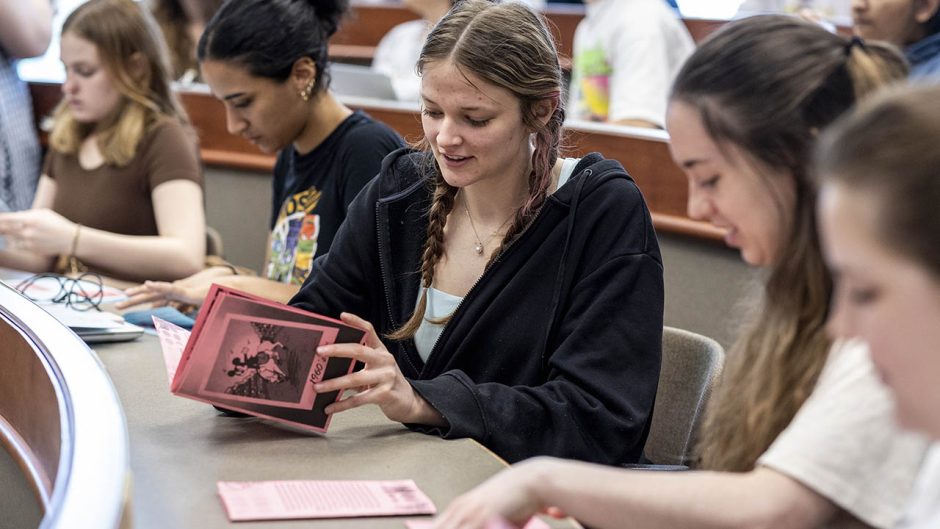Feb. 20, 2020
Contact: Liz McCune, 573-882-6212, mccunee@missouri.edu
Today, University of Missouri officials released the results of the Collaborative on Academic Careers in Higher Education (COACHE) survey, which was administered in 2019 to MU faculty.
“I want to thank our faculty for providing us valuable feedback on this survey,” said Chancellor Alexander N. Cartwright. “These thoughtful responses will guide our continued efforts to improve the working and learning environment at MU. We know that strengthening our environment is a significant factor in retaining and attracting the best faculty to MU and to our continued excellence as Missouri’s flagship, land-grant university.”
The overall average across all 25 campus benchmarks increased by 0.12, showing that faculty satisfaction is improving. Participants could rate the university from a score of 1 to 5, with 5 being the highest mark.
From 2016 to 2019, MU showed noticeable improvements in sentiments related to departmental leadership (0.21), divisional leadership (0.15), senior leadership (0.60), tenure policies (0.11), and health and retirement benefits (0.10). Each of the governance benchmarks showed noticeable improvements as well: trust (0.29), shared sense of purpose (0.28), understanding the issue at hand (0.25), adaptability (0.37), and productivity (0.32).
Top areas of concern include appreciation and concern; governance; and leadership among faculty. Furthermore, faculty of color and underrepresented minority faculty (two groups included in the survey data) consistently reported the lowest levels of satisfaction.
A faculty committee, including tenured, tenure track and non-tenure track faculty, was appointed by Provost and Executive Vice Chancellor for Academic Affairs Latha Ramchand to review the data from the survey. The COACHE committee identified diversity as the most pressing priority area of concern for the university.
“This comprehensive, transparent process allows faculty to ensure we are on the same page as administrators in identifying strengths and opportunities for growth,” said Leigh Neier, associate teaching professor in the College of Education and co-chair of the COACHE committee. “We are engaged in this effort precisely because we care about Mizzou and want to see the institution be a welcoming place to work and study for all members of our community.”
University of Missouri leaders also are focused on creating an inclusive environment that supports the success of all faculty. In the last two years the university has:
- Implemented the Inclusive Excellence Framework across the university to infuse the principles of diversity, equity and inclusion into all aspects of the academic experience.
- Initiated the Preparing Future Faculty Postdoctoral Program for Faculty Diversity to enhance diversity among rising faculty members.
- Worked with departments to promote diversity and inclusion in recruitment efforts through more inclusive candidate pools, and we are better at recognizing and promoting qualified faculty.
- Invested $1.3 million to recruit and retain diverse faculty and staff.
Results from the 2016 report contributed to several changes on campus, including the formation of the Center for Teaching and Learning; updated promotion and tenure standards; promoting diversity and inclusion in candidate pools; and approving multiyear contracts and increased compensation for non-tenure track faculty members.
“These changes show the university’s commitment to not only listen to faculty, but to address their concerns through actionable plans,” said Joe Parcell, director of applied social sciences in the College of Agriculture, Food and natural Resources and COACHE committee co-chair.
“Overall the report pointed to positive shifts in perception on faculty climate since the last report. The report highlights areas of strength, such as quality of colleagues, health and retirement benefits, and affordable living,” Ramchand said. “At the same time, the report also highlighted areas we need to work on and improve, particularly related to lower levels of satisfaction among underrepresented minority faculty and faculty of color. We take these concerns seriously and are committed to making changes that ensure Mizzou has a positive, collaborative environment for all of our valued faculty.”
Throughout the semester, the committee members plan to hold listening sessions with faculty and individual schools and colleges to continue the open dialogue.
“I’m very appreciative of the work the committee did to analyze the data and the input we’ve received from faculty,” Ramchand said. “We’re proud of the work that we have been doing here to engage our faculty and create an environment that fosters creative and collaborative research, excellent teaching and dedicated service.”
The Collaborative on Academic Careers in Higher Education (COACHE) is an ongoing study of faculty job satisfaction coordinated and administered by Harvard University. COACHE strives to place actionable information in the hands of participating colleges and universities to improve work life for faculty. Results from the survey can be accessed online.




